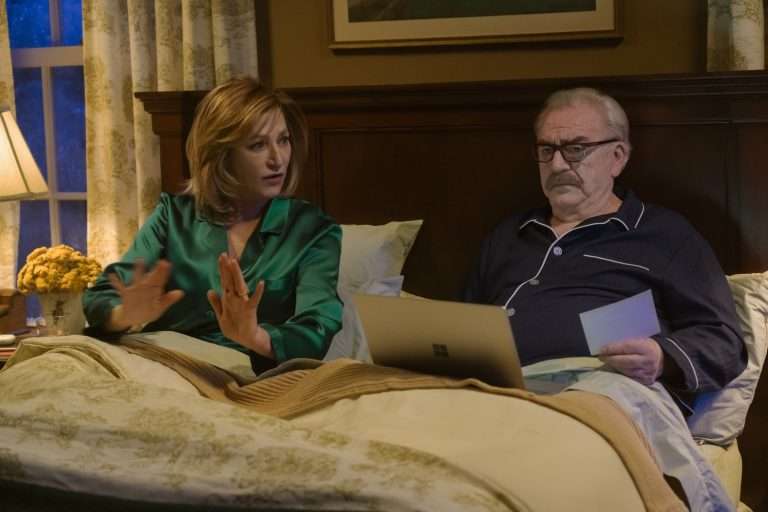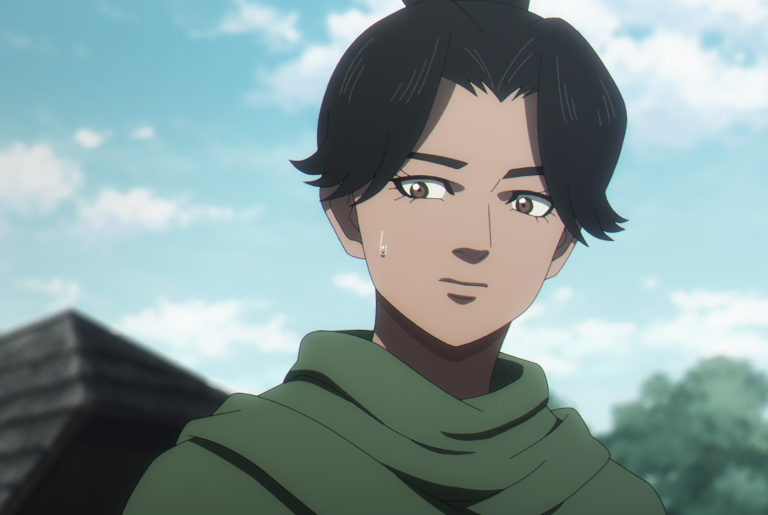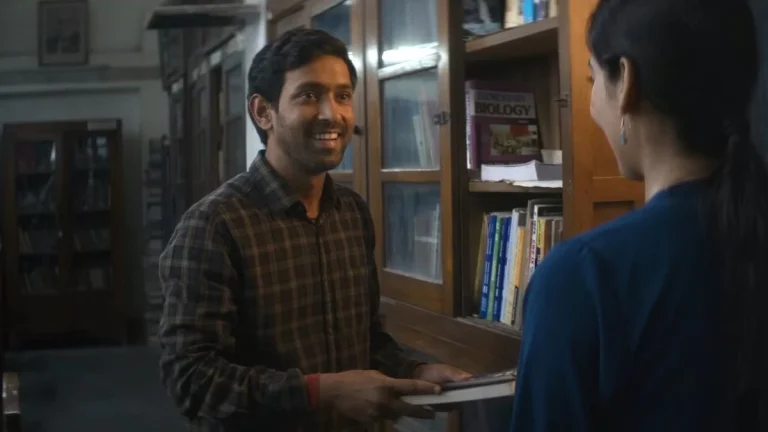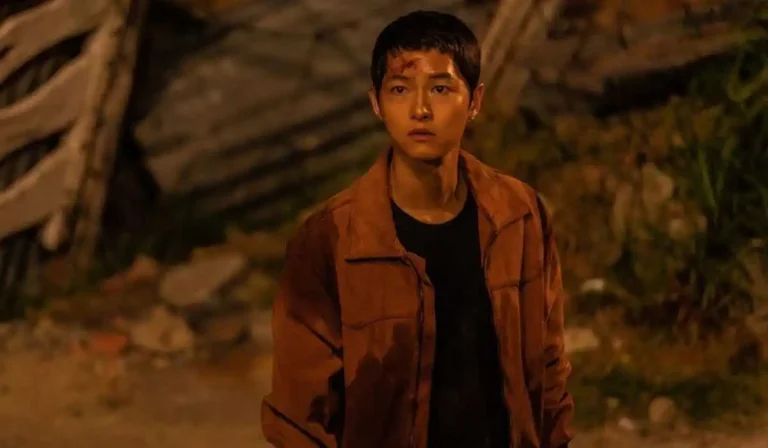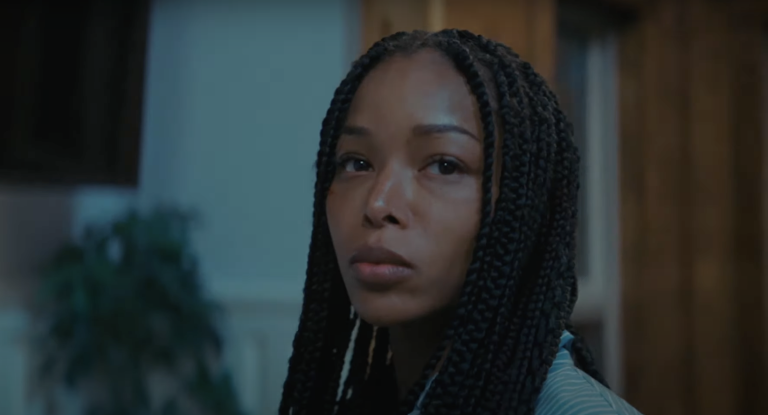Paul Thomas Anderson is one of the most accomplished filmmakers to this date. Over the years, he has carved a niche in Hollywood inspired by Robert Altman, Jonathan Demme, and Stanley Kubrick. His films often have a bold visual style and explore the psyche of flawed, desperate characters fighting alienation or seeking redemption. “The Master” (2012) is a striking work of his filmography that focuses on similar themes. Set in the post-World War II era, it follows a Navy veteran struggling to find meaning in his post-war life. A war veteran crosses paths with a cult leader, who sees him as a perfect disciple of his cause.
The film stars Joaquin Phoenix as the Navy veteran and Philip Seymour Hoffman as the cult leader. Although a captivating experience, “The Master” may feel like a compilation of bold scenes the first time you watch it. With subsequent watches, these pieces come together as a brilliant visceral experience. They offer a cohesive critique of power, trauma, and the inherently flawed structure of organized faith. If you’re wondering why Phoenix’s character behaves the way he does in the end, find the ending explained here.
Spoilers Ahead
The Master (2012) Plot Summary & Movie Synopsis:
Paul Thomas Anderson’s “The Master” mainly explores the relationship between a war veteran and a cult leader, who become inseparable as they devote themselves to the cause of a cult.
What happens in ‘The Master’?
To understand “The Master” in its entirety, let’s quickly recap its premise. The film follows Freddie Quell (Joaquin Phoenix), a World War II Navy veteran, who finds it difficult to adjust to his post-war life. He starts working as a photographer but gets fired after breaking into a fight. Shortly after, he runs away from his next job after he allegedly kills his co-worker. While fleeing, he sneaks into a yacht of a follower of Lancaster Dodd (Philip Seymour Hoffman), a self-righteous preacher who runs a movement known as The Cause. Dodd has an intense processing session, where he asks Freddie disturbing questions about his past.
The session brings Freddie’s painful memories of an old flame. Dodd invites Freddie to his daughter’s wedding and slowly takes Freddie under his wings. Freddie joins Dodd and his entourage in New York as they go on a tour of the East Coast to share their teachings. While there, a skeptic criticizes Dodd’s methods and accuses him of running a cult. Dodd berates him. That night, Freddie breaks into the skeptic’s room and beats him. Later on, Dodd gets arrested for practicing his therapy without a medical license. When the cops show up at Dodd’s doorstep, Freddie makes a scene, and thus, is also arrested.
While in prison, Freddie questions Dodd’s teachings and calls him ‘a fake.’ Dodd gets furious and calls Freddie lazy and worthless. After they get out of prison, Dodd’s family makes him doubt Freddie’s intentions behind being in The Cause, accusing him of being a spy. Still, Dodd trusts Freddie and reconciles with him. Freddie betrays his confidence by running away to his hometown. Dodd invites him back to his cause. However, Freddie decides to part ways with Dodd and his cult for good.
The Master (2012) Movie Themes Analyzed:
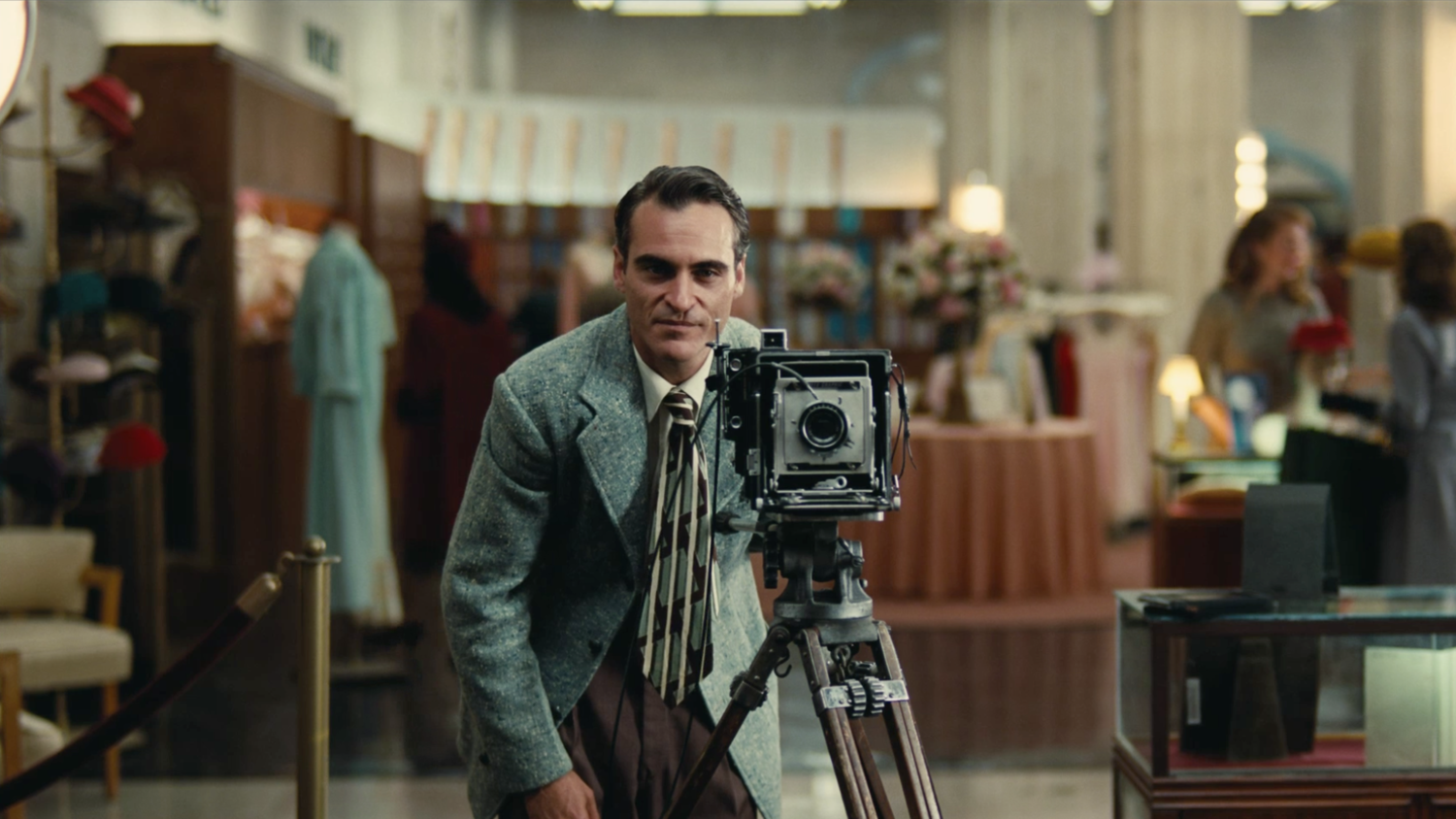
“The Master” follows Freddie and Dodd’s intertwined journey to explore many themes, interconnected through their desire for survival or domination.
Freddie’s Indoctrination: Cause and effects
In the navy, Freddie had a purpose – even if it meant killing his rivals. Once the war ended, he was disillusioned. Besides, he had to experience traumatic events, which caused irreversible damage to his nervous system. While suffering from PTSD, he looked for anything that offered a sense of purpose. However, he could not let go of his demons as they reappeared through his reckless behavior at his job as a department store photographer and a farm worker. As a result, he starts living his life filled with uncertainties, regrets, and repressed emotions.
Eventually, he succumbs to alcoholism likely because it numbs his senses and makes him comfortable. He has no control over his urges and acts almost like an alien learning how to be a human. Dodd uses these vulnerabilities to the advantage of his doctrine. He realizes that Freddie was sexually exploited by an old family member and had to unceremoniously end his relationship with his past fling. He also notices signs of Freddie’s troubled childhood as Freddie doesn’t care for his parents one bit. So, he sees Freddie as a perfect acolyte for The Cause that breathes on an unequivocal devotion.
Dodd transforms Freddie’s animalistic tendencies into a rigorous passion for his cult. Freddie succumbs to Dodd’s hypnotic techniques and fights anyone who opposes or criticizes Dodd’s beliefs, whether that’s a scholar or a cop. Besides, Dodd preys on another one of Freddie’s weaknesses – his desire to belong somewhere.
Freddie & Dodd’s Relationship: Power and Validation
“The Master” offers us glimpses into Freddie’s past and his toxic relationship with his parents. Likely for the same reason, he poisons his colleague at the farm, who looks like his dad (at least that’s what Freddie claims). The film doesn’t confirm his hand in this old man’s death but it offers a peek into Freddie’s troubled past. Eventually, Freddie crosses paths with Dodd, who sees him as an ideal puppet for his dogma. Dodd wants to be in control and Freddie wants to feel a sense of control in his life. Much like Jesse Plemons’ character in “Kinds of Kindness,” Freddie seeks a sense of order in his life, which makes him ideal to be governed in a system that offers it. Without a master, he doesn’t know how to survive.
Freddie complies with Dodd’s outlandish expectations and doesn’t say a word against him until Dodd’s son puts a seed of doubt in his mind. Still, Dodd puts such a spell on him that they behave like an inseparable couple. The film introduces romantic undertones to their mutual attraction through old-timey songs that explain how much they need each other. Even after Freddie’s departure, Dodd calls him to say that he misses Freddie. They have a magnetic connection that thrives on their place in their strange power dynamic. Dodd desires to dominate others and Freddie accepts his behaviour without any questions or criticism.
Cult: Genesis and Growth
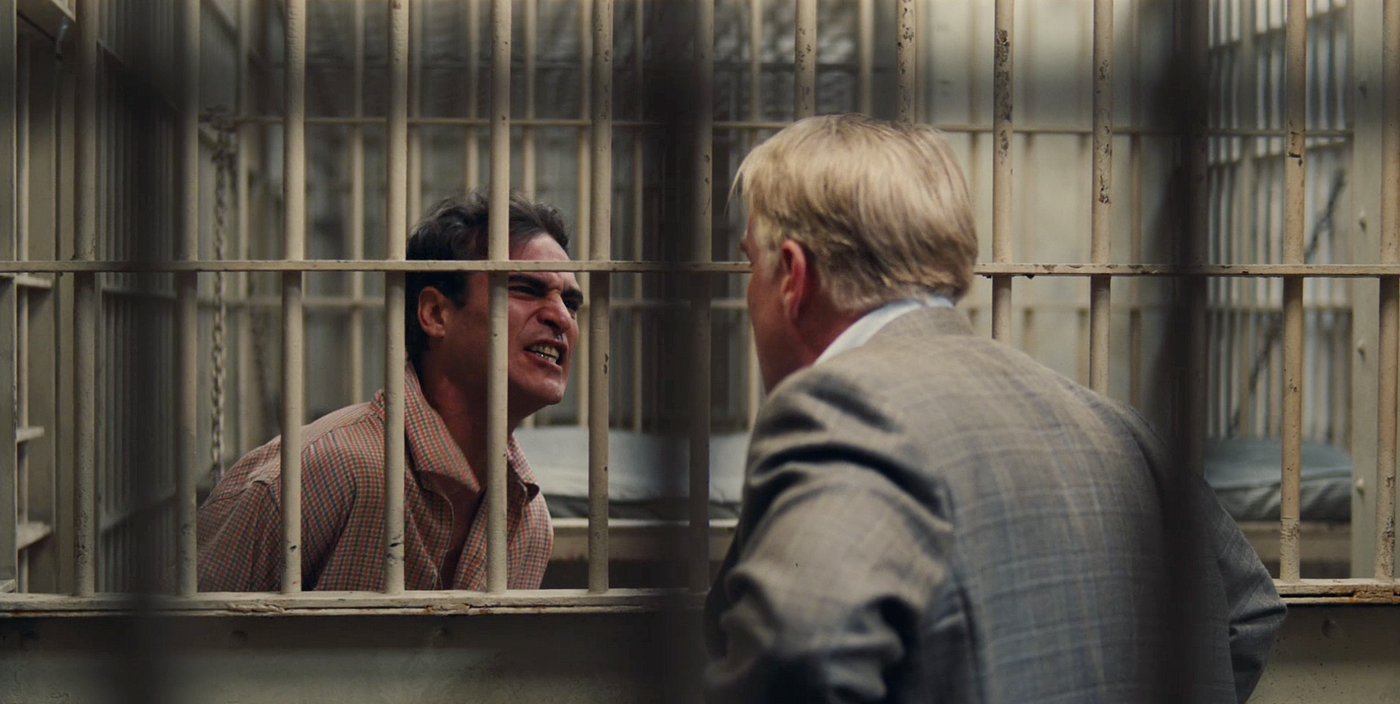
Dodd claims that he knows Freddie from the past. He asks Freddie about his past and forces him to be upfront. Freddie mistakes Dodd’s seasoned techniques of manipulation as help from a savior. So, he devotes his life to Dodd’s cause. Besides Freddie, Dodd uses hypnosis to make people believe they have had past lives. He claims that their visions during those trance-like states are reflections of their past lives. He speaks with a sense of authority and they believe every word he says. However, he flips out the moment someone makes him defend his unscientific beliefs.
Through these elements, “The Master” sheds light on the genesis and growth of a cult. It thrives with acquiescence and corrodes when criticized. The film offers plenty of moments that show people going to any lengths to defend their belief system since the loss of one leads them on a dark path without any direction. In that context, it also works as a critique of an organized religion that stays potent until people believe every word of a preacher.
The Master (2012) Movie Ending Explained:
Does Freddie return to Dodd’s cult?
“The Master” ending changes the dynamic between Freddie and his enabler, Dodd. After getting out of prison, Dodd believes that he can transform Freddie by reshaping his thought process. He subjects Freddie to strange exercises that validate his ego. In the moment, Freddie reacts positively to it but Dodd’s influence slowly wears off of him. Eventually, Dodd takes Freddie to an empty terrain and asks him to pick a spot in the distance, drive there, and return. However, Freddie gets on his motorcycle and never returns. Instead, he returns to his hometown to meet his past fling, only to realize that she is married.
Heartbroken, Freddie dozes off in a local theater. Dodd calls him from London and requests that they meet in person. So, Freddie travels to Dodd’s new base, where Dodd offers him two choices – to rejoin The Cause or never see his face again. Freddie refuses to return to Dodd’s cult but hopes to see Dodd again, possibly in their next life. Dodd claims that he will be Freddie’s sworn enemy if that happens. He reacts after realizing his loss of control over Freddie’s mind. Then, he sings an oddly romantic song before they part ways. Freddie weeps.
What does the ending really mean?
After leaving Dodd’s cult, Freddie walks up to a pub and takes a woman home. As they have sex, he asks her questions identical to what he was asked during his processing session with Dodd. She doesn’t answer Freddie the way Freddie answered Dodd. Still, it arouses her and Freddie. Right after this scene, the film’s final moments show Freddie lying next to a sand sculpture of a nude woman he made during the war. While in war, it represented Freddie’s unfulfilled carnal urges. In the context of the film’s ending, it shows him finding peace and comfort in the company of a woman, not an imagined one.
The ending denotes Freddie letting go of any need for a master to lead his life. Until then, he served one or the other master, be it the navy, the cause, or the family members who abused/tortured him. The final moment shows him realizing his dream and ‘figuring out a way to live without serving a master’ as Dodd asked him to before parting ways. By asking the kind of questions his master asked him, he inadvertently becomes the master of his life. Does it mean he finally attains peace and will continue living while being true to himself? The film doesn’t necessarily answer that. However, it shows him using the tools he learned to lead his life without looking at other people to give his life a sense of purpose.



